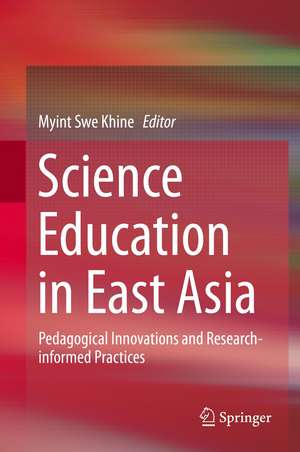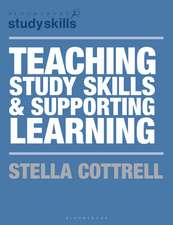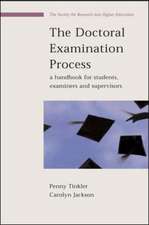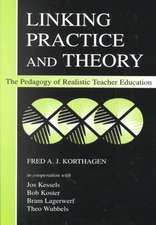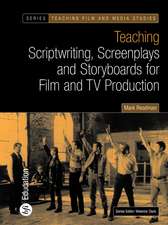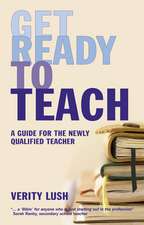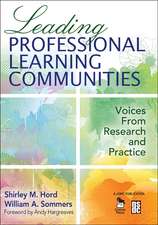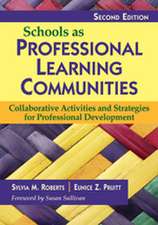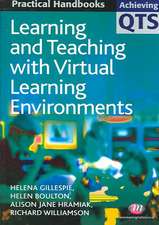Science Education in East Asia: Pedagogical Innovations and Research-informed Practices
Editat de Myint Swe Khineen Limba Engleză Hardback – 18 sep 2015
| Toate formatele și edițiile | Preț | Express |
|---|---|---|
| Paperback (1) | 657.57 lei 6-8 săpt. | |
| Springer International Publishing – 22 oct 2016 | 657.57 lei 6-8 săpt. | |
| Hardback (1) | 664.11 lei 6-8 săpt. | |
| Springer International Publishing – 18 sep 2015 | 664.11 lei 6-8 săpt. |
Preț: 664.11 lei
Preț vechi: 781.31 lei
-15% Nou
Puncte Express: 996
Preț estimativ în valută:
127.07€ • 133.39$ • 105.48£
127.07€ • 133.39$ • 105.48£
Carte tipărită la comandă
Livrare economică 10-24 aprilie
Preluare comenzi: 021 569.72.76
Specificații
ISBN-13: 9783319163895
ISBN-10: 3319163892
Pagini: 320
Ilustrații: VIII, 637 p. 71 illus.
Dimensiuni: 155 x 235 x 43 mm
Greutate: 1.08 kg
Ediția:1st ed. 2015
Editura: Springer International Publishing
Colecția Springer
Locul publicării:Cham, Switzerland
ISBN-10: 3319163892
Pagini: 320
Ilustrații: VIII, 637 p. 71 illus.
Dimensiuni: 155 x 235 x 43 mm
Greutate: 1.08 kg
Ediția:1st ed. 2015
Editura: Springer International Publishing
Colecția Springer
Locul publicării:Cham, Switzerland
Public țintă
ResearchCuprins
PART I INTRODUCTION.- Chapter 1 Research and development in science education: East Asia experience, Myint Swe Khine.- PART II LEARNING: THE EAST ASIAN WAY.- Chapter 2 Effective classroom pedagogy and beyond for promoting scientific literacy: Is there an East Asian Model? Kwok-Chi Lau, Esther Sui-Chu Ho and Terrence Yuk-Ping Lam.- Chapter 3 Confucianism, Chinese families, and academic achievement: Exploring how Confucianism and Asian parenting influence children’s academic achievement, Grace Hui-Chen Huang & Mary Gove.- Chapter 4 The Chinese classic philosophy of learning and teaching: Implications for science education, Zhang Yenming, Bai Yongxiao.- Chapter 5 The ‘Why’ and ‘How’ of engaging parents in their children’s science learning in informal contexts: Theoretical perspectives and applications, Ai Noi Lee, Youyan Nie.- Chapter 6 Characteristics of Chinese learners as revealed from their affective domain and choices of science learning in China, Yau Yuen Yeung.- PART III SCIENCE CURRICULUM CHANGES AND REFORMS.- Chapter 7 Science curriculum changes and STEM education in East Asia, Youngmin Kim, Hye-eun Chu, Gilsum Lim.- Chapter 8 Science education in Shanghai, China: What does it look like other than PISA score? Xinying Yin, Xiaoli Guo, Lan Wang.- PART IV PEDAGOGICAL INNOVATIONS IN SCIENCE EDUCATION.- Chapter 9 The implications of science teaching and practices on educational neuroscience, Chia-Ju Liu, Wen-Wei Chian, Chin-Fei Huang, Ming-Hsun Shen.- Chapter 10 Kids Science Academia: Talent development in STEM from the early childhood years, Manabu Sumida.- Chapter 11 Changes in collaborative discussion and engagement with “Smart Education”, Suna Ryu.- Chapter 12 A study of the internet resource based e-Learning environments in Hong Kong: Animal classification in a primary school, Winnie Wing Mui So, Fiona Ngai Ying Ching.- PART V INQUIRY-BASED SCIENCE INSTRUCTION.- Chapter 13 Packaging inquiry-based science learning for students: A
discursive analysis of one high school teacher’s talk from Singapore, Shien Chue & Yew-Jin Lee.- Chapter 14 Practice and effect of lessons on inquiry activities in upper secondary school Chemistry: Focusing on students' attitudes towards Chemistry, Takaku Kamon, Fujii Hiroki.- Chapter 15 Developing technology-infused inquiry learning modules to promote science learning in Taiwan, Ying-Shao Hsu, Hsin-Yi Chang, Su-Chi Fang, Hsin-Kai Wu.- PART VI TEACHERS PROFESSIONAL DEVELOPMENT.- Chapter 16 Developing teachers through professional learning communities in Singapore and Shanghai, Hairon Salleh, Charlene Tan Hwee Phio.- Chapter 17 Japanese elementary teachers’ abilities to learn how to teach science from curriculum materials: Preparation for future learning perspectives, Etsuji Yamaguchi.- Chapter 18 Chinese secondary school science teachers’ perceptions of the nature of science and Chinese native knowledge, Hongming Ma.- Chapter 19 Developing science teachers’ pedagogical reasoning through reflective practices in overseas professional development program: A case study, Do-Yong Park, Young Hak Kim.- VII EMERGING RESEARCH IN SCIENCE EDUCATION.- Chapter 20 Designing computer-supported knowledge building to promote conceptual change amongst high-school students in Hong Kong, Ivan C. K. Lam, Carol K.K. Chan.- Chapter 21 Implementation of standards-based curriculum by chemistry teachers: From curriculum materials to teaching practice, Bo Chen, Bing Wei.- Chapter 22 Supporting socio-scientific argumentation in the classroom through automatic group formation based on students’ real-time responses, Yu-Ta Chien, Chun-Yen Chang.- VIII INTERNATIONAL BENCHMARKING TESTS.- Chapter 23 Identifying crucial and malleable factors of successful science learning from 2012 PISA, Alex Chong Ho Yu, Frances Shuang Wu, Casey Mangan.- Chapter 24 Science self-beliefs and science achievement in TIMSS 2011: A comparison between eighth grade students of six East Asian nations, Lay YoonFah, Shaljan Areepattamannil, Ng Khar Thoe, Khoo Chwee Hoon.- Chapter 25 Correlates of science achievement in Singapore: A multilevel exploration, Shaljan Areepattamannil, Ching Leen Chiam, Daphnee H.L. Lee, Helen Hong, Index.
discursive analysis of one high school teacher’s talk from Singapore, Shien Chue & Yew-Jin Lee.- Chapter 14 Practice and effect of lessons on inquiry activities in upper secondary school Chemistry: Focusing on students' attitudes towards Chemistry, Takaku Kamon, Fujii Hiroki.- Chapter 15 Developing technology-infused inquiry learning modules to promote science learning in Taiwan, Ying-Shao Hsu, Hsin-Yi Chang, Su-Chi Fang, Hsin-Kai Wu.- PART VI TEACHERS PROFESSIONAL DEVELOPMENT.- Chapter 16 Developing teachers through professional learning communities in Singapore and Shanghai, Hairon Salleh, Charlene Tan Hwee Phio.- Chapter 17 Japanese elementary teachers’ abilities to learn how to teach science from curriculum materials: Preparation for future learning perspectives, Etsuji Yamaguchi.- Chapter 18 Chinese secondary school science teachers’ perceptions of the nature of science and Chinese native knowledge, Hongming Ma.- Chapter 19 Developing science teachers’ pedagogical reasoning through reflective practices in overseas professional development program: A case study, Do-Yong Park, Young Hak Kim.- VII EMERGING RESEARCH IN SCIENCE EDUCATION.- Chapter 20 Designing computer-supported knowledge building to promote conceptual change amongst high-school students in Hong Kong, Ivan C. K. Lam, Carol K.K. Chan.- Chapter 21 Implementation of standards-based curriculum by chemistry teachers: From curriculum materials to teaching practice, Bo Chen, Bing Wei.- Chapter 22 Supporting socio-scientific argumentation in the classroom through automatic group formation based on students’ real-time responses, Yu-Ta Chien, Chun-Yen Chang.- VIII INTERNATIONAL BENCHMARKING TESTS.- Chapter 23 Identifying crucial and malleable factors of successful science learning from 2012 PISA, Alex Chong Ho Yu, Frances Shuang Wu, Casey Mangan.- Chapter 24 Science self-beliefs and science achievement in TIMSS 2011: A comparison between eighth grade students of six East Asian nations, Lay YoonFah, Shaljan Areepattamannil, Ng Khar Thoe, Khoo Chwee Hoon.- Chapter 25 Correlates of science achievement in Singapore: A multilevel exploration, Shaljan Areepattamannil, Ching Leen Chiam, Daphnee H.L. Lee, Helen Hong, Index.
Recenzii
In the twenty-first century, science is seen as a global enterprise. Similarly, science education is recognised as a priority in educational systems throughout the world. Yet even when there is widespread commonality in the science set out to be learnt in national curricula, it is necessary to pay attention to local context when planning - or seeking to understand - science teaching and learning. Contextual factors such as the language of instruction, cultural norms, shared epistemological commitments, and local value systems impact upon the perception and enactment of different pedagogies and on a learner’s understanding of taught concepts. Yet many influential texts on science teaching are primarily based upon research in a limited range of cultural contexts (often Western Europe, North America and Australasia). This book offers a wide spread of studies looking at different aspects of science education from East Asia. This collection will be of great value to science educators in that region and to scholars in comparative education. It will also be illuminating to all those working in science education who are interested in teasing out the way cultural influences overlay and complement universal features of human cognition in determining how learners respond to science teaching.
Keith Taber
Faculty of Education
University of Cambridge, United Kingdom
Keith Taber
Faculty of Education
University of Cambridge, United Kingdom
Notă biografică
Myint Swe Khine is Professor and Program Chair of Assessment and Evaluation Centre at the Emirates College for Advanced Education, United Arab Emirates. He obtained Masters Degrees from the University of Southern California, Los Angeles, USA and University of Surrey, Guildford, UK and Doctor of Science Education from Curtin University, Australia. He is also an Adjunct Professor at Science and Mathematics Education Centre at Curtin University, Australia. He has published widely and edited books on science education. Recent books published by Springer include Advances in Nature of Science Research (2012), Perspectives on Scientific Argumentation (2012) and Critical Analysis of Science Textbooks (2013).
Textul de pe ultima copertă
This book presents innovations in teaching and learning science, novel approaches to science curriculum, cultural and contextual factors in promoting science education and improving the standard and achievement of students in East Asian countries. The authors in this book discuss education reform and science curriculum changes and promotion of science and STEM education, parental roles and involvement in children's education, teacher preparation and professional development and research in science education in the context of international benchmarking tests to measure the knowledge of mathematics and science such as the Trends in Mathematics and Science Study (TIMSS) and achievement in science, mathematics and reading like Programme for International Student Assessment (PISA). Among the high achieving countries, the performance of the students in East Asian countries such as Singapore, Taiwan, Korea, Japan, Hong Kong and China (Shanghai) are notable. This book investigates the reasons why students from East Asian countries consistently claim the top places in each and every cycle of those study. It brings together prominent science educators and researchers from East Asia to share their experience and findings, reflection and vision on emerging trends, pedagogical innovations and research-informed practices in science education in the region. It provides insights into effective educational strategies and development of science education to international readers.
This collection will be of great value to science educators in that region and to scholars in comparative education. It will also be illuminating to all those working in science education who are interested in teasing out the way cultural influences overlay and complement universal features of human cognition in determining how learners respond to science teaching.
Keith Taber, Faculty of Education, University of Cambridge, UK
The strong influence of culture on East Asian
education is well-known. The success of East Asian countries in international science achievement comparisons has recently achieved much accolade and the science education research community has been growing exponentially over the past few decades. Yet, few of us outside Asia, are well-versed in their approach to education. This volume is an excellent beginning. Norman Lederman, College of Science, Illinois Institute of Technology, USA
Norman Lederman, College of Science, Illinois Institute of Technology, USA
This collection will be of great value to science educators in that region and to scholars in comparative education. It will also be illuminating to all those working in science education who are interested in teasing out the way cultural influences overlay and complement universal features of human cognition in determining how learners respond to science teaching.
Keith Taber, Faculty of Education, University of Cambridge, UK
The strong influence of culture on East Asian
education is well-known. The success of East Asian countries in international science achievement comparisons has recently achieved much accolade and the science education research community has been growing exponentially over the past few decades. Yet, few of us outside Asia, are well-versed in their approach to education. This volume is an excellent beginning. Norman Lederman, College of Science, Illinois Institute of Technology, USA
Norman Lederman, College of Science, Illinois Institute of Technology, USA
Caracteristici
Helps readers develop their understanding of teaching and learning approaches in science education in the East Asian region Presents an overview of educational reforms and pedagogical innovations in science education in East Asian countries Discusses emerging research on the cultural and educational practices that lead to the successful learning of science amongst East Asian students
